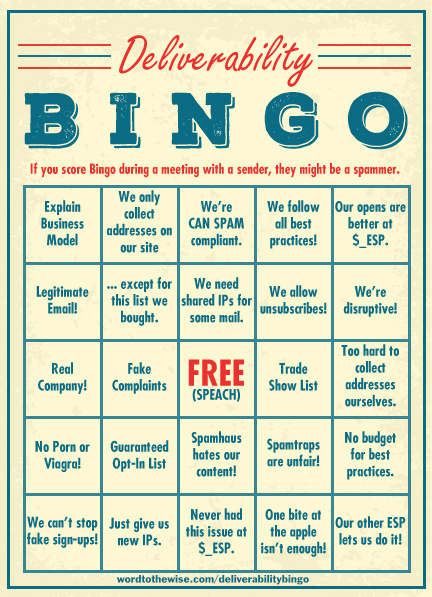Many online retailers assume that anyone making a purchase from them is a prime target for email marketing. THEY ARE OUR CUSTOMERS! Of course they want to get mail from us!
Well. Maybe. But not always. Think about the person who shops online during the holidays. I visit a lot of places looking for gifts for other people. These aren’t places I’d normally shop for myself, and are not places that have things I’m interested in. This means I don’t really have, or want, an ongoing relationship with them.
So for those of you that think they’ve found a new customer because I made a purchase this Christmas, I’d just like to say: Not so much. I mean, yeah, you have the perfect gift for my mother this year. Or that appropriately tacky bit of Vette swag for my dad. But, really, I just want to buy the gift and have it shipped. I don’t want an ongoing customer relationship with you. In fact, I really never want to hear from you again.
Some online retailers are polite and treat purchasers with respect. They allow guest checkouts and don’t require tons of personal information and account creation for a purchase. They even let you opt-out of being added to their mailing list at the time of purchase. Other retailers require the full registration process (you need to know my marital status? so I can buy a gift for my dad? what?) and don’t offer an opt-out during the checkout process. Instead, you infer I want your mail and make me opt-out after the fact.
Making a purchase doesn’t constitute permission. Sometimes retailers can get away with it because when I’m making a purchase for me I might be interested in more mail from you. When I’m making a purchase for someone else, though, there is no long term relationship to be developed.
Sure, with the right campaign you may be able to convert one of those purchasers into a returning purchaser. But without a carefully planned and executed conversion campaign you may lose more future customers than you convert.
Read More